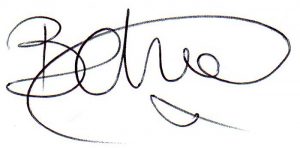

The first ever G8 Summit on Dementia will take place in London today. A historic moment that finally demonstrates an acknowledgement from the world that dementia is THE global health and care priority that governmnts worldwide are grappling with.
Looking beyond the big vehicles of government and global politics that will dominate the headlines today though, and actually what I see is people. Most individuals in that room will be there because their job demands it, but when they leave their offices, get out of their ministerial cars and close their own front doors, they are first and foremost people.
I hope today’s Summit has a real humanity about it, because like every global focus on something that afflicts the body, it is about raw humanity. It’s about life and death, degeneration and pain, and the hope that we can do something better for people who are experiencing that now and in the future.
Whilst recording my personal experiences of dementia for one of the films that will be shown at the Summit today (you can watch my film here), I broke down in tears. Whilst I may cry in private in those moments that still sting me following my father’s passing after 19 years with vascular dementia, I have never cried in public whilst on a ‘work’ assignment. Professionalism demands that my message has controlled emotion, not the sort of breakdowns associated with those who are grieving – tears suggest you want sympathy, when actually I want action.
Yet in that studio the moment got to me in a way that no other moment quite had in a public arena. The cameras stopped, and looking back now, I wonder how many people who have lost a loved one to dementia had wished in those dark and difficult moments that the world could stop, just like those cameras did. Many of the people watching my recording were also moist around their eyes, on my journey home those emotions were still simmering under the surface, and even now as I watch the film I feel tearful.
Despite all of my public speaking engagements, nothing really prepared me for what sitting in front of those cameras, talking about my personal experiences of my dad’s dementia, would really be like. I hope that despite all of their years as hardened politicians, civil servants and business moguls that nothing really prepares the delegates at today’s Summit either.
If I could ask one thing it would be that everyone in Lancaster House today arrives with a clear mind and a willingness to embrace the message of humanity that I anticipate will be set early on by hearing the personal accounts of people who have dementia, and those who have cared for a loved one with dementia. My message, although sad, has hope in it too, and my wish more than anything is for that hope to shine through.
We need a fresh look at how we approach dementia. How we care for people living with it, how we support them and their families, and how we give everyone who is touched by dementia some of my hope. In short ,a strategy that goes beyond partisan boundaries and political colours and puts people with dementia and their families at its heart: an outcome that is about people and humanity.
In my mind it is also about delivering something that de-stigmatises and empowers people living with dementia and their families. I fear a rush of headlines that depict dementia in the same way that you would wars and disasters. I can tell you now, as someone whose father lived with dementia for 19 years, I largely avoided any dementia related media coverage in that time. That which I couldn’t avoid often demonised people living with dementia, yet my father was a loving, intelligent, family man, not some raging brute who needed to be caged and forgotten about.
Gravitas in the argument around dementia doesn’t come from using ever more extreme language in describing it. Nor does it make improvements in care and support, treatments, prevention and cure any more likely – if it did then they would be here by now. It comes from humanity. From seeing people with dementia as people. The politician who takes his children to visit their gran in her care home. The businessman whose mum has just had a fall at home and is feeling really confused. Me and my dad.
I don’t want to call the G8 Dementia Summit a once in a lifetime opportunity, because I believe the chance to make a difference exists every day, whether you are a scientist, a politician, a journalist, a medic or a care worker. Whatever profession we choose we are still people, subject to human frailty, and foolish if we are not mindful that if dementia doesn’t affect our grandparents or our parents, it might just affect us or our children.
Our time to make a difference is now.

You can follow me on Twitter: @bethyb1886
Like D4Dementia on Facebook
